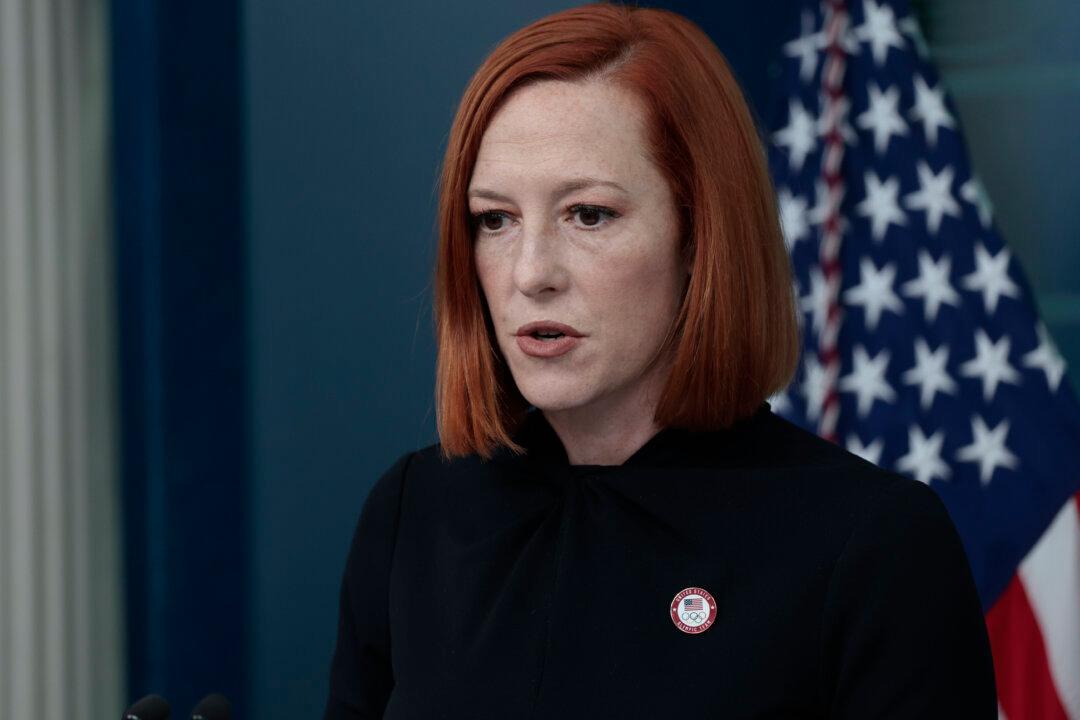
White House press secretary Jen Psaki speaks during a briefing in Washington on Feb. 7, 2022. Anna Moneymaker/Getty Images
Former White House press secretary Jen Psaki must sit for a deposition, a U.S. judge ruled on Nov. 21.
Psaki, who now works for MSNBC, isn’t facing an “undue burden,” U.S. District Judge Terry Doughty, a Trump appointee, wrote in
a seven-page ruling.





